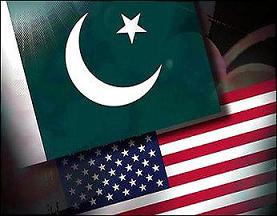US Is No Stranger to Double-Dealing: The Role of Pakistan’s Inter-Services Intelligence (ISI) and its links to the CIA
The American media accusing Pakistan of deceit should realise their country has a history of doing the same thing

Following the revelation by WikiLeaks that there have been fresh allegations that Pakistan’s Inter-Services Intelligence (ISI) is secretly aiding the Taliban in Afghanistan, sections of the US media rushed to accuse Islamabad of supporting both sides of the decade-old conflict. A lengthy op-ed in the New York Times on Tuesday said that Pakistan had been involved in double-dealing for years. “Despite the billions of dollars the United States has sent in aid to Pakistan since September 11, [the revelation] offers powerful new evidence that crucial elements of Islamabad’s power structure have been actively helping to direct and support the forces attacking the American-led military coalition”, the New York Times said.
Critics of Pakistan tend to forget, however, that double-dealing is Washington’s favourite foreign policy strategy. When weaker nations adopt the same method they are merely following in the footsteps of the master. Furthermore, if the ISI maintains strong ties with the Taliban, the US was the main sponsor and supporter of both the ISI and the Taliban.
In fact, since the early years of the Cold War, the US regarded Islam as a key foreign policy tool to achieve its strategic objectives in the Gulf and the Middle East. Washington believed that the best way to contain the Soviet Union in this region was by establishing a green belt that stretched from Pakistan in the east to Egypt in the west. Mohammad Hassanein Heikal, a well-known Egyptian commentator, claimed that this plan was revealed to him by General Alfred Armistead, who was in charge of US military aid to Third World countries. Heikal also claimed that this same point was mentioned again when he met former US secretary of state John Foster Dulles. Dulles told Heikal, “Your region was floating on two seas: oil and religion”. During this period, the US relied on the support of what it considered moderate Islamic governments. These included Saudi Arabia, Pakistan, Morocco, Indonesia, Turkey and Iran.
In 1979, with the Soviet invasion of Afghanistan, the US was no longer in a position to rely solely on moderate Islamic governments to protect its interests in the region. It hence established a ‘Rapid Deployment Task Force’ intended to intervene at short notice in the event of further Soviet advancement towards the Gulf. It also had other aims in mind.
In an interview with the French magazine Le Nouvel Observateur, former US national security adviser Zbigniew Brzezinski admitted that the US plan in Afghanistan was to force the Soviet Union to invade the country. By supporting Islamic elements against the Marxist regime in Kabul, the US intended to destabilise the predominantly Muslim parts of Soviet Central Asia and drag Moscow into the Afghan quicksand where a war of attrition could be started. Hence, Brzezinski devised a strategy that envisaged establishing an Islamic alliance against the Soviet invasion. Brzezinski believed that because of the ideological antipathy between Islam and Communism, Islamic states would serve as a bulwark against the Soviets. Subsequently, he flew to Egypt, Saudi Arabia and Pakistan to sell the US plan. Brzezinski’s tour was highly successful. Saudi Arabia agreed to provide financial support, Egypt weapons and Pakistan training and logistics. The Soviet Union was duly defeated in Afghanistan and ultimately collapsed.
Serious allegations
After the end of the Cold War, political Islam fell from grace. After 9/11 in particular, the US started accusing Saudi Arabia and Pakistan of creating a “monster”. In a report on the September 11, 2001 attacks released after months of investigation by a joint panel of the US House and Senate intelligence committees, Saudi Arabia and Pakistan were accused of having funnelled hundreds of millions of dollars to charitable groups and other organisations that were suspected of assisting the September 11 hijackers.
The Bush administration made most of the 900-page report public but, for “national security reasons”, decided to classify 28 pages. The declassified part focused on the role played by Saudi Arabia and Pakistan in financing and training Islamic activists in the 1980s and 1990s. In Afghanistan and Bosnia, the report accused Riyadh and Islamabad of supporting Arab Mujahideen fighting Soviet and Serb forces. Yet, the report failed to mention that successive Republican and Democratic administrations had also provided financial and logistical support for the Afghan Mujahideen and that the CIA had led a coordinated effort to expel the Soviet forces from Afghanistan. The report also ignored the fact that covert support for the Mujahideen received bipartisan backing in the 1980s and that under the Reagan administration Washington provided Islamic fighters with some of the most sophisticated weapons in its arsenal, including the Stinger anti-aircraft missile. As for Bosnia, the report failed to acknowledge that the Clinton administration had urged Saudi Arabia to pay for Iranian-made arms shipped to Bosnian Muslims through Turkey and that Arab Mujahideen were parachuted over Bosnia by US airplanes.
But apparently, all this does not amount to double-dealing in the eyes of some Americans.
Dr Marwan Al Kabalan is a lecturer in media and international relations at Damascus University’s Faculty of Political Science and Media in Syria.

